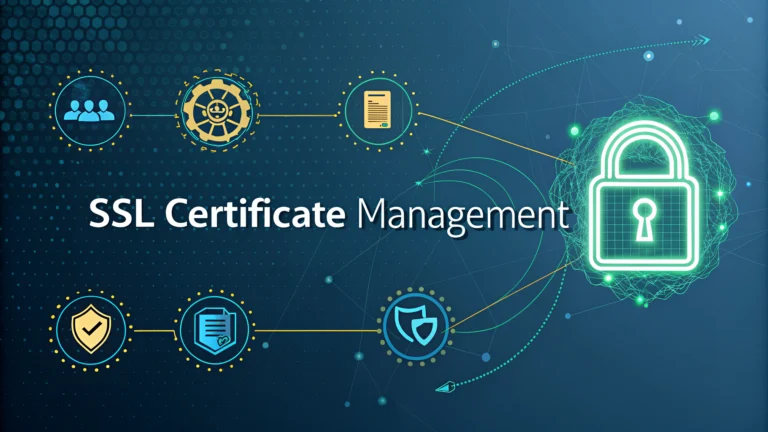SSL certificates protect sensitive data transmitted between web servers and browsers through encrypted connections.
These digital certificates verify a website’s identity and enable secure HTTPS communication.
Organizations can obtain SSL certificates from trusted Certificate Authorities (CAs) like DigiCert, Comodo, and Let’s Encrypt.
Types of SSL Certificates
Domain Validated (DV) certificates offer basic encryption and are fastest to obtain.
Organization Validated (OV) certificates require additional business verification and display company information.
Extended Validation (EV) certificates provide the highest level of trust, showing verified company details in the browser address bar.
SSL Certificate Management Best Practices
Track certificate expiration dates using automated monitoring tools to prevent unexpected website outages.
Implement a renewal strategy at least 30 days before certificate expiration.
Use centralized certificate management platforms for tracking multiple domain certificates efficiently.
Selecting the Right SSL Certificate
Consider your website’s security requirements, validation level, and budget when choosing an SSL certificate.
Wildcard certificates protect a primary domain and unlimited subdomains cost-effectively.
Multi-domain (SAN) certificates allow securing multiple domains with a single certificate.
SSL Installation and Configuration
Generate a Certificate Signing Request (CSR) with your server’s private key before certificate issuance.
Verify certificate installation using online SSL checker tools to confirm proper configuration.
Configure web servers like Apache or Nginx to enable HTTPS and proper SSL implementation.

